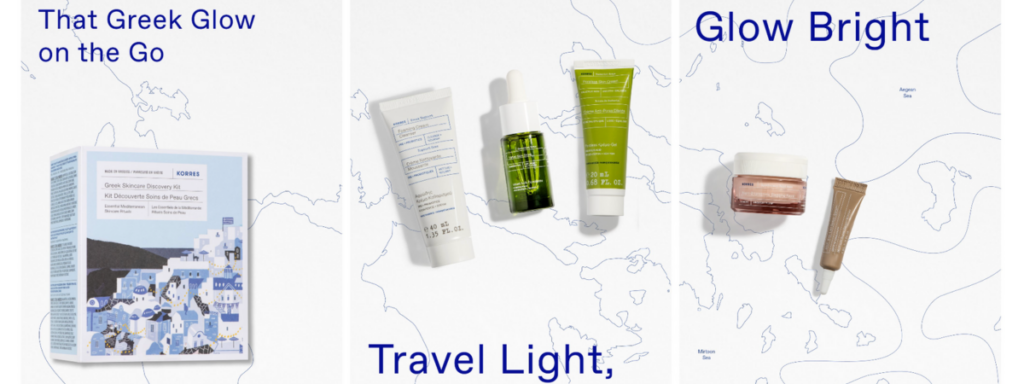In today’s crowded global marketplace, how can Greek businesses truly stand out and connect with consumers? The key just might lie in embracing the rich, authentic Greek identity, which blends history, food, and hospitality.
Greek identity is much more than iconic ruins and stunning islands. I would describe it as a story that ties together the past, present, and future. When used authentically, this story can build trust, spark interest, and create lasting connections with customers.
Today’s consumers are looking for real stories, core values, and want to feel a genuine connection to the brands they support. When a brand stays true to its roots, people notice. It feels natural, and that trust leads to loyalty. And loyal customers? They become your brand’s best advocates. Let’s analyze how Greek brands can achieve this in the global market.
Proven Systems for Business Owners, Marketers, and Agencies
→ Our mini-course helps you audit and refine an existing brand in 15 days, just 15 minutes a day.
→ The Ultimate Brand Building System is your step-by-step blueprint to building and scaling powerful brands from scratch.
Table of Contents
What Makes Greek Identity So Special?
Greece offers a wealth of cultural depth, breathtaking landscapes, and a strong sense of community that shapes its identity. Here are some key elements that make the Greek identity so compelling in branding:
The Concept of “Philotimo”
A deeply rooted Greek concept that captures honor, pride, effort, and the desire to do good for others. There’s no direct English translation, but it encompasses much more than a single word can express.
Hospitality (Filoxenia)
The Greek tradition of treating guests like family. This warmth is perfect for creating approachable, people-centered brands.
Mediterranean Lifestyle
A lifestyle that values simplicity, health, and enjoyment of life. It’s about living in harmony with nature, not following rigid rules.
Craftsmanship
Greece has a long history of artisanal skills, whether in the production of olive oil, honey, ceramics, or other local crafts. It’s a country that has always celebrated the beauty of handmade, authentic products.
How Greece’s Main Industries Can Leverage Their Greek Identity
Food and beverages
Greek food and products have an undeniable connection to tradition. Brands in this sector often highlight their origins, local farms, family recipes, and the traditional methods they use.
Every detail, from the logo and colors to the tone of voice, contributes to the story.
Example: Imagine a small honey producer in Crete. Instead of just selling honey, they share the story of the family’s beekeeping traditions, how their grandfather harvested honey from the wildflowers, and how the bees are tended to by hand every spring. It’s this kind of personal touch that people remember.
Tourism & Hospitality
In the tourism sector, successful businesses are those that share authentic local stories. It’s not just about the destination. It’s about the experiences that make it special.
Example: At Aristi Mountain Resort in Epirus, hospitality feels like coming home. For the more gastronomically curious guests, Aristi Mountain Resort & Villas offers cooking classes at the hotel’s farm. With the guidance of the chef, participants learn how to prepare a full three-course meal featuring traditional dishes from the local cuisine, using handmade, fresh organic ingredients from the greenhouse, as well as locally sourced products.
Fashion & Design
Greek designers are increasingly infusing their work with elements of Greece’s rich history. They use ancient symbols and motifs not just to create beautiful products but to connect their customers with something timeless.
Example: Hermina Athens is a jewellery brand that allows you to carry a piece of Greek myth and meaning with you. Inspired by ancient stories and strong female archetypes, the brand incorporates symbols such as the evil eye, laurel wreaths, and mythological figures into designs that feel both personal and powerful. Named after the female counterpart of Hermes, the messenger god Hermina Athens blends tradition with modern femininity. Every piece is crafted in small batches by local Athenian artisans, keeping Greek craftsmanship alive in a way that feels intimate, soulful, and relevant to today’s world.
To use Greek identity in branding effectively, it’s important to be honest and transparent. Authenticity is key, and that means avoiding clichés. It’s not enough to slap a Greek flag on a product or include a traditional evzone (a Greek soldier of old times).
Developing a Brand Identity: Tips for Greek Brands
Greek Branding: A Unique Selling Point
The beauty of Greek identity is that it resonates with people all over the world, not just Greeks. The culture, the landscape, and the history all fascinate people from every corner of the globe.
When you tap into these elements, you create a brand that becomes more than just a product. It becomes a feeling. It becomes a reference point. But… there’s a fine line to walk. Greek identity is powerful, but it needs to be handled with care.
Brand’s story and origins
Tell your origin story: Every brand has a story. Share yours, especially the roots that make it unique. Highlight tradition and people: Show the faces behind your brand (e.g., the artisans, the farmers, the creators). Focus on highlighting who you are and where you come from, not just what you make.
Brand’s verbal identity
Here’s what makes Greek branding truly authentic: Use local language and terms (with translation): Words like “kefi” (joy), “meraki” (doing something in a pleasant way, by giving effort), and “philotimo” evoke deep emotions and connect with your audience on a personal level.
Also, try to be true to yourself: Don’t over-exaggerate. People appreciate honesty and clarity.
Brand’s visual identity
Try to keep your visuals consistent. Use colors and textures that evoke Greece (blue and white), stone and sea, sun and earth. Your visuals should reflect the story you’re telling.
Things to Watch Out For
Avoid clichés. Ancient columns and bouzouki music may work in moderation, but relying on these overused symbols can make your brand feel outdated. It’s about being authentic, not overly nostalgic.
Additional Real-Life Examples of Authentic Greek Brands
Here are a few Greek brands that have mastered authenticity in their branding:
Korres: A skincare brand that blends Greek herbs with modern science, telling a story that connects nature, tradition, and innovation.

Mastiha Shop: Centered around mastiha, a resin from the island of Chios, this brand tells the story of unique products found only in Greece, blending its health benefits with quality and tradition.

Apivita: A natural beauty brand inspired by the Greek countryside and the magic of bees. Their products, crafted with ingredients such as propolis and local herbs, emphasize sustainability and wellness.

Carpo: Carpo is a destination for premium nuts and chocolate; but also a place that combines Greek warmth, care, and craftsmanship. From the moment you walk into their flagship store in Athens, London, or Dubai, you feel the rich notes of chocolate and a quiet sense of elegance. The staff welcomes you like an old friend, offering tastes and stories about where each almond was grown, how the chocolate was made, or why that particular honey is so rare. Also, their ingredients are carefully selected from trusted Greek producers.

Final Thoughts
Greek identity is rich in depth, stories, and meaning, but it’s only effective for brands when it’s used honestly. Whether you’re selling a product or service, what you’re offering is unique: a story shaped by real people, real places, and genuine passion.
Greece’s history, landscape, and culture offer something special. In a world that values authenticity and connection, embracing Greek identity could be your greatest strength.
Cover Image
- Credits: Images from Apivita, Mastiha Shop, and Carpo (Websites/Instagram profiles)








